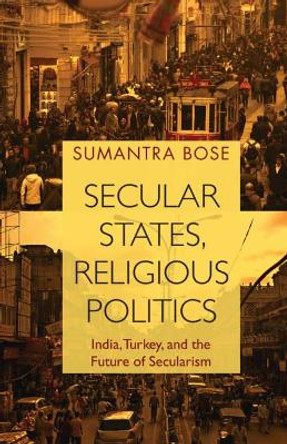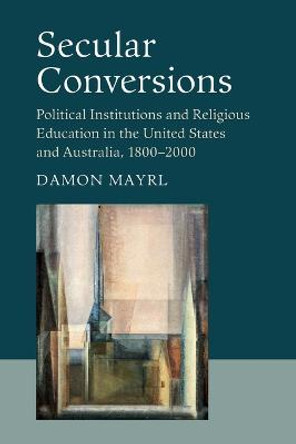This comparative analysis probes why conservative renderings of religious tradition in the United States, India, and Egypt remain so influential in the politics of these three ostensibly secular societies. The United States, Egypt, and India were quintessential models of secular modernity in the 1950s and 1960s. By the 1980s and 1990s, conservative Islamists challenged the Egyptian government, India witnessed a surge in Hindu nationalism, and the Christian right in the United States rose to dominate the Republican Party and large swaths of the public discourse. Using a nuanced theoretical framework that emphasizes the interaction of religion and politics, Scott W. Hibbard argues that three interrelated issues led to this state of affairs. First, as an essential part of the construction of collective identities, religion serves as a basis for social solidarity and political mobilization. Second, in providing a moral framework, religion's traditional elements make it relevant to modern political life. Third, and most significant, in manipulating religion for political gain, political elites undermined the secular consensus of the modern state that had been in place since the end of World War II. Together, these factors sparked a new era of right-wing religious populism in the three nations. Although much has been written about the resurgence of religious politics, scholars have paid less attention to the role of state actors in promoting new visions of religion and society. Religious Politics and Secular States fills this gap by situating this trend within long-standing debates over the proper role of religion in public life.
An important contribution to the literature on religion and politics. Hibbard's argument is ambitious, the macro-comparison of Egypt, India, and the United States is novel and interesting, and he has clearly done a wealth of research. -- Steven A. Cook, author of Ruling but Not Governing: The Military and Political Development in Egypt, Algeria, and Turkey The study of religious nationalism has gathered considerable momentum in the last twenty years. But no one has shown so comprehensively as Scott Hibbard the impact of the political manipulation of religion on shaping national ideals. His examination of the contemporaneous policies of the Indian, Egyptian, and American governments is as revealing as it is original. -- David Little, Harvard Divinity SchoolAbout the AuthorScott W. Hibbard is an assistant professor in the Department of Politics at DePaul University. He is the coauthor of Islamic Activism and U.S. Foreign Policy.
ReviewsStudents of contemporary religion and contemporary politics should consider Hibbard's argument very seriously. -- Jack David Eller Anthropology Review Database 2011 With its accessible language and rich examples, this book would be of interest to a wide audience that includes general readers as well as scholars of religion and politics. Choice 2011
AwardsWinner of IPSA Charles H. Levine Memorial Book Prize 2011 (United States).
Book InformationISBN 9780801896699
Author Scott W. HibbardFormat Hardback
Page Count 328
Imprint Johns Hopkins University PressPublisher Johns Hopkins University Press
Weight(grams) 590g
Dimensions(mm) 229mm * 152mm * 26mm







